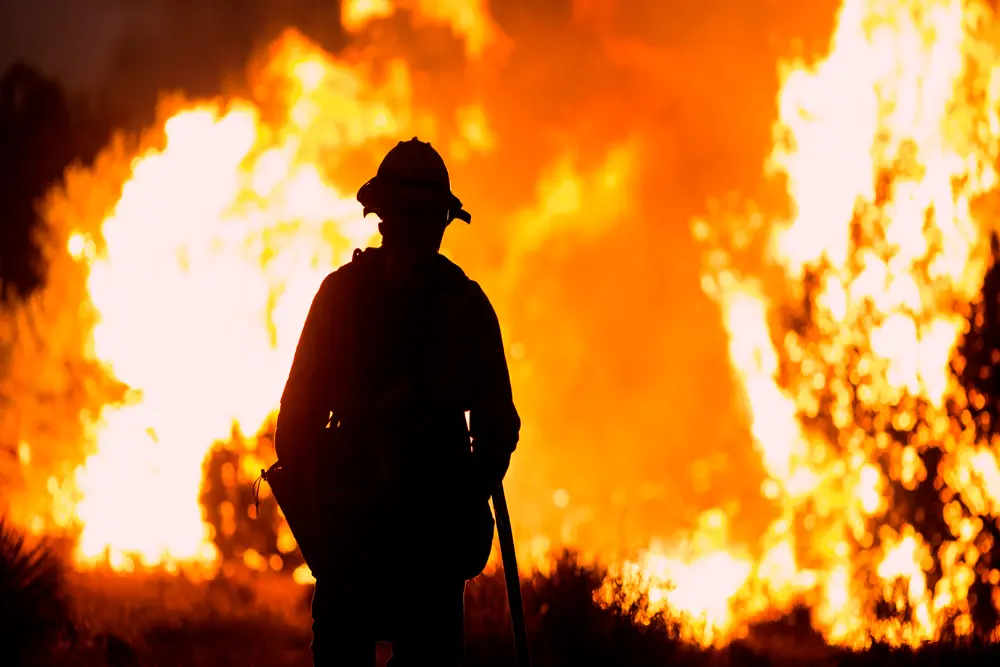
The Los Angeles-area wildfires have exposed California’s deep-rooted disregard for its own citizens and absolute negligence when it comes to providing basic benefits. The ineptitude has been on full display for over a month already, with Los Angeles – one of America’s great cities – being practically ruined before our eyes. An area of over 57,000 acres of land has been completely burnt down, with fires claiming 28 lives. To put this into perspective, all of Manhattan is just 14,600 acres. Over 300,000 residents have been subjected to evacuation orders, with the government seemingly not having a single clue on how to tackle this issue.
Rep. Maxine Waters (D-California) claimed on Saturday in an interview with Chris Cuomo that citizens of California lost their homes because they did not “pay their fair taxes”. This is insane, as no California official has ever demanded greater taxes from the public to combat wildfires, On the contrary, the government does have enough money, it just does not know what to do with it. The state consistently fails to address the root causes of fires, instead opting for expensive, last-minute firefighting efforts. They’re putting out fires, not preventing them. Resources are often allocated inefficiently, with delayed responses and inadequate support for communities in need. Taxpayers are footing the bill for a reactive system that doesn’t work.
But issues persist not only when it comes to resource management, but other areas as well. Bureaucratic red tape and environmentalist opposition have hamstrung the use of controlled burns, a proven method for reducing fire risk. This inaction is bordering on negligence. Additionally, The state has failed to curb development in high-risk areas, prioritizing short-term gains over long-term safety. Building codes remain weak, and communities are being built in the path of predictable infernos. Ultimately, No one is held truly accountable for the repeated failures in wildfire management. Bureaucratic inertia prevails, with endless task forces and reports achieving little real change. Instead, The government hides behind climate change as a convenient scapegoat, deflecting blame for their own poor decisions and lack of planning. They treat the symptoms, not the disease.
California’s wildfire “strategy” has always been a disaster waiting to happen and now that this disaster has indeed happened it is time for citizens to wake up. The government has consistently demonstrated a lack of vision, competence, and the political will to address the problem effectively. The result is devastating fires, loss of life, and a crumbling sense of public trust. They prioritize political expediency over public safety, and Californians are paying the price. Their ineptitude is not just a policy failure; it’s a dereliction of duty and a betrayal of the social contract between the state and its citizens.
The social contract, the implicit agreement between a government and its citizens, hinges on the promise of protection, provision, and representation. The current fires are only a symptom of a wider disease, which lies in the fact that in California, this contract is being systematically violated, leaving citizens feeling abandoned and betrayed by a government that seems more interested in its own perpetuation than in serving the public good.
The unchecked rise of homelessness, fuelled by a housing crisis of the state’s own making, creates unsafe conditions for everyone. The failure to effectively manage wildfires is not just an environmental disaster; it’s a direct failure to protect lives and property. Sky-high housing costs, driven by bureaucratic hurdles and NIMBYism, lock out younger generations and push families to the brink. A crushing tax burden, coupled with stifling regulations, makes it increasingly difficult for businesses to thrive, limiting economic mobility. Basic necessities like clean air and reliable infrastructure are becoming luxuries in California. The state’s underfunded and inefficient public transportation system exacerbates traffic and pollution. The educational system, riddled with inequalities and underperformance, fails to prepare future generations for success.
Ultimately, instead of responsive leadership, California’s government has become elitist and completely disconnected from the struggles of ordinary citizens. Decisions are made with little public input and often prioritize special interests over the needs of the populace. This broken social contract is not just a political problem; it’s a moral failure that demands urgent and radical change. The government must be held accountable for betraying the very people it is supposed to represent and protect.










Comments